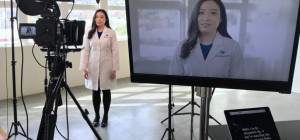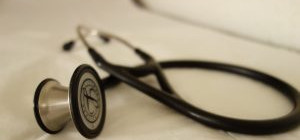 Depression is an increasingly common mental health disorder being diagnosed in people all over the world, from all walks of life. Traditional treatment options for depression range from SSRIs or SNRIs, to therapy (counseling, psychotherapy, ERT), to more extreme treatment options such as invasive surgical procedures. Of course, the severity of the depressive disorder will determine the type of treatment option.
Depression is an increasingly common mental health disorder being diagnosed in people all over the world, from all walks of life. Traditional treatment options for depression range from SSRIs or SNRIs, to therapy (counseling, psychotherapy, ERT), to more extreme treatment options such as invasive surgical procedures. Of course, the severity of the depressive disorder will determine the type of treatment option.
Sometimes, despite medical professionals’ best intentions, treatment-resistant depression occurs. The patient does not improve with treatment, but regresses into a deeper and darker place in their mind. This can have devastating effects on the individual, by making it impossible to conduct normal day-to-day activities. For most people, antidepressants and therapy are sufficient to assist with the difficulties of depressive disorders. For some people, these treatment regimens simply don’t work.
If the patient is showing no signs of improvement, or even regresses to a darker place, it’s time to step up with alternative treatment options for major depressive disorder. The severity of MDD in a patient may warrant psychiatric care to prevent the patient from harming themselves or others. The psychiatrist may recommend any number of treatment options, including: Electroconvulsive Therapy (ECT), Deep TMS (Transcranial Magnetic Stimulation), or Vagus Nerve Stimulation (VNS). Note that some of these options are invasive and require surgical procedures.
What is Electroconvulsive Therapy?
Electroconvulsive therapy, or ECT requires the patient to be anaesthetized for a full medical procedure. While the patient is sedated and asleep, the psychiatrist, nurse practitioner, and other medical professionals use pulses of electricity to pass through the brain, triggering small seizures. This procedure is known to alter brain chemistry, and it can quickly reverse symptoms of severe depression. There are potential side-effects with ECT, notably short-term memory loss, confusion, and pain. This invasive procedure is highly effective at treating MDD, but other options should be considered first.
What is Deep TMS (Transcranial Magnetic Simulation)?
Deep TMS treatment is an FDA approved treatment for depression. It is a nonsurgical, non-invasive, outpatient procedure conducted in a clinic. It involves a specialized helmet with electromagnetic waves that are directed towards specific areas of the brain. These include the dorsolateral prefrontal cortex. The electromagnetic field generated by the sophisticated helmet targets areas deep within the brain that are known to be responsible for depressive disorder symptoms.
It is extremely well tolerated across the board and has few side effects.. Patients are awake throughout the short treatment sessions (20 minutes), which take place 5 days a week, for several weeks. By the end of the treatments, a large percentage of patients report recovery, or a dramatic improvement in depressive disorder symptoms. With Deep TMS, there is minimal downtime, since common side effects are treatment-site discomfort, which quickly pass.
What is Vagus Nerve Stimulation?
Vagus Nerve Stimulation should be used as a last resort, after ECT and TMS have been tried. This type of extreme therapy is designed to stimulate the vagus nerve with electrical shocks. A device is surgically implanted in the patient’s neck, attached to the vagus nerve.
Electrical impulses then travel along the nerve to the mood centers of the cerebral cortex. This procedure has shown a propensity to improve symptoms of depression, but it’s important to have a thorough consultation with a psychiatrist before this procedure is embarked upon.
Getting the Right Treatment for Major Depressive Disorder
Major Depressive Disorder (MDD) is a serious and ongoing mental health condition which requires the right treatment plan. Patients suffering from MDD may not respond well to medication, in which case the psychiatrist or mental health counselor may recommend alternative medications.
If therapy and medication are ineffective, alternative options can be sought out such as Deep TMS – an FDA-approved method for treating MDD which is pain-free, nonsurgical, and highly effective. Deep TMS can also be used in conjunction with medications for a bifurcated approach to tackling MDD in people with treatment resistant depression.
In the event that Deep TMS and medication are ineffective, patients may be required to undergo surgical procedures. These include a number of effective options, albeit with side effects. It is imperative that patients take care of themselves while suffering through MDD, by exercising regularly, trying to maintain a balanced sleep schedule, mitigating stress, and avoiding alcohol, drugs, and other stimulants which may aggravate the condition.
It should be pointed out that there is no easy solution for successfully treating major depressive disorder in patients. The condition is serious, and requires a thorough workup, and regular consultations between the patient and therapist/psychiatrist. Constant monitoring of symptoms, responses to medication, and side-effects of procedures are sacrosanct.







